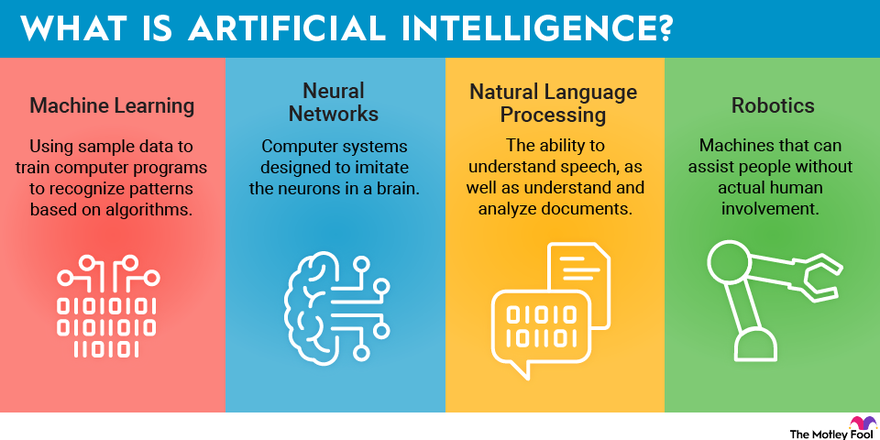
Dhlog
Overview
-
Sectors Sales
Company Description
DeepSeek: how China’s ‘AI Heroes’ Overcame uS Curbs To Stun Silicon Valley
When ChatGPT stormed the world of synthetic intelligence (AI), an unavoidable concern followed: did it spell trouble for China, America’s biggest tech competitor?

Two years on, a new AI model from China has flipped that question: can the US stop Chinese innovation?
For a while, Beijing appeared to fumble with its response to ChatGPT, which is not readily available in China.
Unimpressed users buffooned Ernie, the chatbot by search engine huge Baidu. Then came versions by tech companies Tencent and ByteDance, which were dismissed as followers of ChatGPT – however not as excellent.
Washington was confident that it was ahead and wished to keep it that way. So the Biden administration ramped up limitations prohibiting the export of innovative chips and innovation to China.
That’s why DeepSeek’s launch has actually amazed Silicon Valley and the world. The company says its powerful model is far more affordable than the billions US companies have spent on AI.
So how did an obscure business – whose founder is being hailed on Chinese social media as an “AI hero” – pull this off?
DeepSeek: the Chinese AI app that has the world talking
Watch DeepSeek AI bot respond to question about China
The difficulty
When the US disallowed the world’s leading chip-makers such as Nvidia from selling sophisticated tech to China, it was definitely a blow.
Those chips are essential for developing effective AI designs that can perform a series of human jobs, from responding to standard inquiries to fixing intricate mathematics problems.

DeepSeek’s creator Liang Wenfeng explained the chip restriction as their “primary challenge” in interviews with local media.
Long before the ban, DeepSeek acquired a “substantial stockpile” of Nvidia A100 chips – estimates range from 10,000 to 50,000 – according to the MIT Technology Review.
Leading AI designs in the West utilize an approximated 16,000 specialised chips. But DeepSeek states it trained its AI design utilizing 2,000 such chips, and thousands of lower-grade chips – which is what makes its product cheaper.
Some, consisting of US tech billionaire Elon Musk, have actually questioned this claim, arguing the company can not reveal the number of sophisticated chips it actually used provided the restrictions.
But experts say Washington’s restriction brought both obstacles and opportunities to the Chinese AI market.
It has “required Chinese companies like DeepSeek to innovate” so they can do more with less, says Marina Zhang, an associate teacher at the University of Technology Sydney.
DeepSeek’s creator Liang Wenfung (R) at a recent federal government meeting
” While these restrictions posture challenges, they have also spurred imagination and strength, lining up with China’s broader policy goals of accomplishing technological self-reliance.”
The world’s second-largest economy has invested greatly in big tech – from the batteries that power electrical automobiles and photovoltaic panels, to AI.
Turning China into a tech superpower has actually long been President Xi Jinping’s ambition, so Washington’s restrictions were also an obstacle that Beijing handled.
The release of DeepSeek’s brand-new design on 20 January, when Donald Trump was sworn in as US president, was intentional, according to Gregory C Allen, an AI specialist at the Center for Strategic and International Studies.
” The timing and the way it’s being messaged – that’s precisely what the Chinese federal government wants everybody to believe – that export controls don’t work which America is not the global leader in AI,” says Mr Allen, former director of method and policy at the US Department of Defense Joint Expert System Center.
Over the last few years the Chinese federal government has nurtured AI talent, providing scholarships and research grants, and encouraging collaborations between universities and industry.
The National Engineering Laboratory for Deep Learning and other state-backed efforts have helped train countless AI specialists, according to Ms Zhang.
And China had lots of bright engineers to recruit.
Is China’s AI tool DeepSeek as good as it appears?
BBC’s AI correspondent describes why DeepSeek has actually caused shockwaves
Published.
3 days back
The skill
Take DeepSeek’s team for example – Chinese media says it consists of less than 140 individuals, many of whom are what the internet has proudly declared as “home-grown talent” from elite Chinese universities.
Western observers missed out on the development of “a new generation of business owners who prioritise foundational research study and long-term technological development over quick revenues”, Ms Zhang states.
China’s top universities are producing a “quickly growing AI skill swimming pool” where even managers are frequently under the age of 35.
” Having matured throughout China’s rapid technological climb, they are deeply inspired by a drive for self-reliance in development,” she adds.
This video can not be played
To play this video you need to allow JavaScript in your browser.
Watch: DeepSeek AI bot reacts to BBC concern about China
Deepseek’s creator Liang Wenfeng is an example of this – the 40-year-old studied AI at the prominent Zhejiang University. In a short article on the tech outlet 36Kr, individuals knowledgeable about him state he is “more like a geek rather than an employer”.
And Chinese media explain him as a “technical idealist” – he insists on keeping DeepSeek as an open-source platform. In fact experts also think a thriving open-source culture has enabled young start-ups to pool resources and advance faster.
Unlike tech firms, DeepSeek prioritised research, which has actually permitted more experimenting, according to specialists and individuals who worked at the company.
” The Top 50 talents in this field may not remain in China, but we can construct people like that here,” Mr Liang stated in an interview with 36Kr.
But specialists question how much even more DeepSeek can go. Ms Zhang states that “brand-new US limitations may restrict access to American user information, potentially affecting how Chinese designs like DeepSeek can go global”.
And others say the US still has a huge benefit, such as, in Mr Allen’s words, “their huge quantity of calculating resources” – and it’s likewise uncertain how DeepSeek will continue using innovative chips to keep improving the model.
But for now, DeepSeek is enjoying its moment in the sun, given that the majority of people in China had actually never ever become aware of it till this weekend.
The new AI heroes
His sudden popularity has actually seen Mr Liang end up being a feeling on China’s social media, where he is being applauded as one of the “3 AI heroes” from southern Guangdong province, which surrounds Hong Kong.
The other two are Zhilin Yang, a leading professional at Tsinghua University, and Kaiming He, who teaches at MIT in the US.
DeepSeek has delighted the Chinese web ahead of Lunar New Year, the country’s most significant vacation. It’s good news for a beleaguered economy and a tech market that is bracing for further tariffs and the possible sale of TikTok’s US service.
” DeepSeek shows us that just if you have the genuine offer will you stand the test of time,” a top-liked Weibo remark checks out.
” This is the best new year gift. Wish our motherland thriving and strong,” another checks out.
A “blend of shock and excitement, especially within the open-source community,” is how Wei Sun, primary AI analyst at Counterpoint Research, explained the reaction in China.
DeepSeek’s success has been cheered in China during its biggest vacation
Fiona Zhou, a tech worker in the southern city of Shenzhen, states her social media feed “was unexpectedly flooded with DeepSeek-related posts the other day”.
” People call it ‘the magnificence of made-in-China’, and state it surprised Silicon Valley, so I downloaded it to see how excellent it is.”

She asked it for “4 pillars of [her] destiny”, or ba-zi – like a customised horoscope that is based upon the date and time of birth.
But to her frustration, DeepSeek was incorrect. While she was given a comprehensive explanation about its “thinking process”, it was not the “4 pillars” from her genuine ba-zi.

